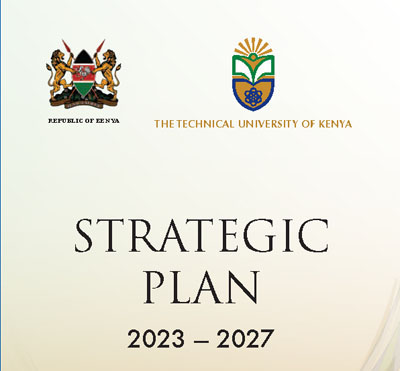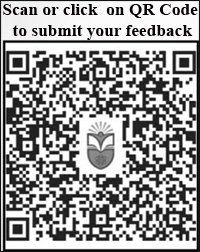The Technical University of Kenya (TU-K) boasts a rich history, tracing its origins to 1961 when it was established as the Kenya Polytechnic. It evolved from the Kenya Technical Institute, which was a part of the Royal Technical College of East Africa (RTCEA), founded following the Willoughby Report of 1949 to offer technical education in East Africa. Over the years, the institution underwent significant transformations, progressing from a National Polytechnic to a Constituent University College, and finally achieving university status as the Technical University of Kenya in 2013. The establishment of centers such as the Center for Open and Lifelong Education (COLE) underscores TU-K's commitment to providing a well-rounded education that extends beyond technical training. Emphasis on interdisciplinary knowledge and lifelong learning is a testament to the university's dedication to equipping both students and the broader public with practical skills and knowledge essential for everyday life and professional growth.
The Center for Open and Lifelong Education (COLE) at the Technical University of Kenya is committed to providing high-quality, accessible, and inclusive educational opportunities to learners and staff at all stages of life. The principles, procedures, and guidelines governing the operations and activities of COLE, ensure alignment with the institution's mission, vision, and core values, reaffirming COLE’s commitment to providing accessible, high-quality, and innovative educational opportunities that empower learners to succeed in a dynamic and interconnected world.
Vision
To be a leading center of excellence in open learning and lifelong education, empowering individuals to thrive in a dynamic global environment through innovative and accessible educational opportunities.
Mission
To provide high-quality, flexible, and inclusive learning experiences that cater for diverse needs and aspirations, foster a culture of lifelong learning by offering accessible education, skills development, and professional growth opportunities to learners at all stages of life, thereby contributing to personal enrichment, societal advancement, and economic prosperity.
Accessible Education: Closely work with the University Faculties and Departments to expand access to education by offering flexible learning pathways, including online courses, distance learning programs, evening classes, and weekend workshops, to accommodate the diverse needs of learners.
Quality Assurance: Ensure the delivery of high-quality professional and academic programs and services through continuous improvement, rigorous assessment, and adherence to international standards of excellence in teaching, learning, and student support.
Innovation and Adaptability: Embrace emerging technologies, pedagogical approaches, and best practices in education to enhance the effectiveness and relevance of our programs, fostering innovation, creativity, and critical thinking among learners.
Community Engagement: Foster partnerships with industry, government agencies, non-profit organizations, and local communities to address societal needs, promote lifelong learning, and facilitate knowledge exchange and transfer.
Professional Development: Provide opportunities for professional growth, skill enhancement, and career advancement through targeted training programs, certifications, and workshops designed to meet the evolving demands of the job market.
Research and Scholarship: Support scholarly inquiry, applied research, and knowledge creation in the fields of open learning, adult education, and lifelong learning, contributing to the advancement of theory, practice, and policy in the field.
Inclusivity and Diversity: Create an inclusive and supportive learning environment that respects diversity, promotes equity, and celebrates the unique backgrounds, perspectives, and contributions of all learners, faculty, and staff.
Student Success and Well-being: Prioritize student/learner success, well-being, and holistic development by working with the Dean of students to provide comprehensive academic advising, counseling services, and co-curricular activities that nurture personal growth, resilience, and lifelong learning habits.
Global Engagement: Foster international collaboration, exchange programs, and cross-cultural experiences to promote global citizenship, intercultural understanding, and collaboration in addressing shared challenges and opportunities.
Sustainability: Integrate principles of environmental stewardship, social responsibility, and ethical leadership into our educational practices and institutional operations, fostering a culture of sustainability and contributing to the creation of a more just and sustainable world.
i. Access and Equity:
COLE is dedicated to promoting access and equity in education by eliminating barriers to learning and ensuring equal opportunities for all learners, regardless of background, identity, or ability. Admission to COLE programs will be based on merit, and efforts will be made to accommodate the diverse needs and aspirations of learners through flexible learning pathways and support services.
ii. Program Development and Delivery:
In collaboration with the University Faculties and Departments, COLE develops and delivers a range of programs, including certificate courses, continuing education courses, and professional development workshops, in alignment with industry needs, market demand, and academic/professional standards. Program offerings are regularly reviewed and updated to remain relevant and responsive to changing societal needs and technological advancements.
iii. Quality Assurance:
COLE is committed to upholding high standards of quality in teaching, learning, and student/learner support services. All programs and courses offered by COLE undergo rigorous quality assurance processes, including curriculum design, instructional delivery, assessment methods, and learner feedback mechanisms, to ensure academic excellence and learner satisfaction.
iv. Flexibility and Innovation:
COLE embraces innovative teaching methodologies, instructional technologies, and flexible learning modalities to enhance the learning experience and accommodate the diverse needs and preferences of learners. Blended learning, online courses, distance education, and experiential learning opportunities is integrated into program delivery to promote active engagement and personalized learning experiences.
v. Student/Learner Support Services:
COLE provides comprehensive support services to assist learners in achieving their academic, professional, and personal goals. This includes academic advising, career counseling, tutoring, mentoring, library resources, technical support, and disability services, as well as access to extracurricular activities and community engagement opportunities.
vi. Research and Scholarship:
COLE supports scholarly inquiry, applied research, and knowledge dissemination in the fields of open learning, adult education, and lifelong learning. Faculty and staff are encouraged to engage in research activities, publish scholarly works, and participate in academic conferences to contribute to the advancement of knowledge and innovation in the field.
vii. Community Engagement:
COLE actively engages with industry partners, government agencies, non-profit organizations, and local communities to address societal needs, foster collaboration, and promote lifelong learning. Partnerships are established to facilitate internships, work-integrated learning experiences, community service projects, and continuing education initiatives that benefit learners and society.
viii. Governance and Compliance:
COLE operates in accordance with the policies, regulations, and guidelines set forth by the Technical University of Kenya, as well as relevant national and international accreditation standards and legal requirements.
ix. Monitoring and Evaluation:
COLE regularly monitors and evaluates the effectiveness of its programs, services, and policies through ongoing assessment, data analysis, and stakeholder feedback. Performance indicators and benchmarks are established to measure progress towards achieving the set objectives and corrective actions taken as needed to address areas for improvement.



